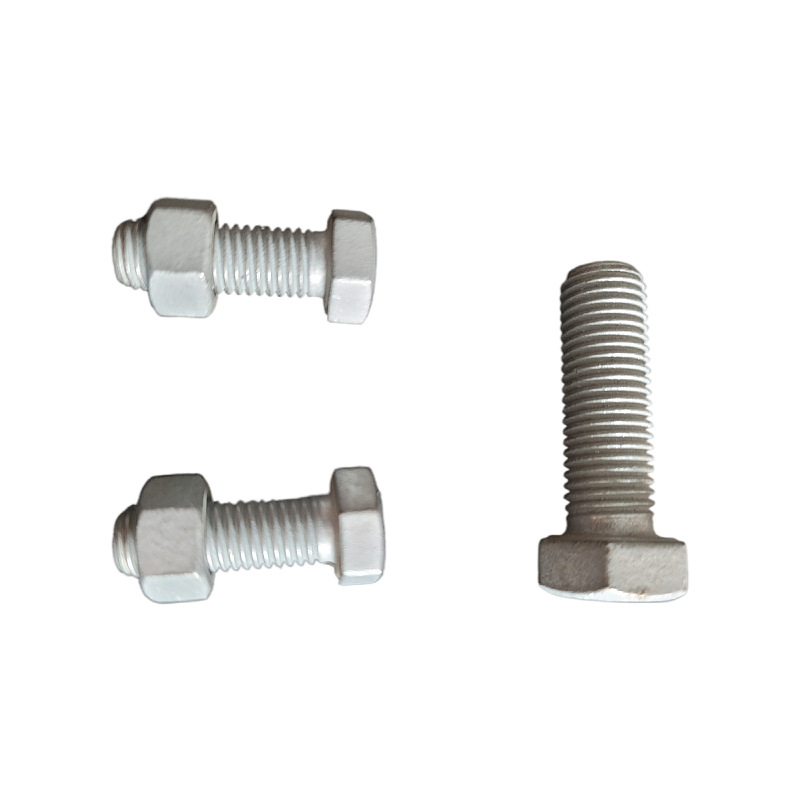

weld nuts
Dec . 13, 2024 11:38 Back to list
weld nuts
Understanding Weld Nuts A Comprehensive Overview
Weld nuts are a crucial component in various assembly applications, particularly in the automotive, manufacturing, and construction industries. Designed to provide a solid anchor point for bolts, these nuts allow for easy fastening and serve as effective solutions for providing a fastening point in structures, machinery, and components where traditional methods of securing may be challenging. This article delves into the features, applications, advantages, and considerations associated with weld nuts.
What are Weld Nuts?
Weld nuts are specialized nuts designed to be welded onto a workpiece, creating a strong and permanent fastening point. They often feature a flange that increases their surface area, enhancing the stability of the weld joint. Typically made from materials such as steel or stainless steel, weld nuts are available in various sizes and thread specifications to accommodate different bolt sizes and applications. They are specifically engineered to withstand high levels of stress and provide a reliable fastening point.
Types of Weld Nuts
There are several types of weld nuts, each designed for specific applications and environments. The most common types include
1. Standard Weld Nuts These have a basic design and are the most commonly used. They provide a straightforward fastening solution. 2. Square Weld Nuts Featuring a square flange, these nuts offer increased surface area for welding, which can enhance the strength of the connection.
3. Spherical Weld Nuts These nuts have a rounded flange which allows for better accommodation of irregular surfaces, making them versatile for different applications.
4. Serrated Flange Weld Nuts The serrated edge helps to grip the material better and can prevent slippage during assembly.
5. Captive Weld Nuts Designed to remain attached to the material even when a bolt is not inserted, these are particularly useful in reducing the chances of misplacement during assembly.
Applications of Weld Nuts
Weld nuts are immensely versatile and used across various sectors, such as
- Automotive Industry In vehicles, weld nuts are often used for attaching panels, securing brackets, and other components, ensuring a strong and durable connection.
- Manufacturing Weld nuts are employed in machinery assemblies, providing essential fastening points in conveyor systems, robotics, and equipment.
weld nuts

- Construction In structural applications, they serve a vital role in securing elements together, such as steel beams and frames.
- Aerospace Due to their ability to handle vibrations and extreme conditions, weld nuts are also used in aerospace applications to ensure the integrity of aircraft components.
Advantages of Using Weld Nuts
1. Strength and Durability Weld nuts provide a permanent and robust fastening solution. Once welded, they can withstand heavy loads and resist loosening over time.
2. Ease of Installation The ability to weld directly onto a component simplifies the assembly process, reducing the need for drill holes and other fastening methods.
3. Space-Saving Weld nuts save space compared to traditional nuts, making them ideal for compact or confined assemblies where there is limited room for standard fasteners.
4. Versatile Applications Their adaptability to various materials and surfaces makes them suitable for a wide range of industries and applications.
Considerations When Using Weld Nuts
Despite their advantages, there are also considerations to take into account when using weld nuts
- Material Compatibility Ensure that the weld nut material is compatible with the base material for optimal bonding.
- Welding Method The choice of welding method (such as MIG, TIG, or spot welding) can affect the strength and integrity of the weld. Proper techniques should be adhered to.
- Access and Positioning Proper access to the welding area is crucial for effective installation. Planning the design accordingly can save time and prevent errors.
In conclusion, weld nuts represent a vital component in ensuring efficient, durable, and reliable fastening solutions across various industries. Their diverse applications, coupled with their inherent advantages in strength and ease of use, make them an essential element in modern assembly and manufacturing processes. Understanding their types, applications, and operational considerations ensures that one can utilize weld nuts effectively, enhancing the overall integrity and performance of the assembled products.
Latest news
-
Hot Dip Galvanized Bolts-About LongZe|High Strength, Corrosion Resistance
NewsJul.30,2025
-
High-Strength Hot Dip Galvanized Bolts - Hebei Longze | Corrosion Resistance, Customization
NewsJul.30,2025
-
Hot Dip Galvanized Bolts-Hebei Longze|Corrosion Resistance&High Strength
NewsJul.30,2025
-
High-Strength Hot-Dip Galvanized Bolts-Hebei Longze|Corrosion Resistance&High Strength
NewsJul.30,2025
-
Hot Dip Galvanized Bolts-Hebei Longze|Corrosion Resistance&High Strength
NewsJul.30,2025
-
Hot Dip Galvanized Bolts - Hebei Longze | Corrosion Resistance, High Strength
NewsJul.30,2025

